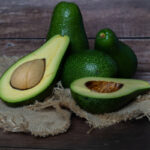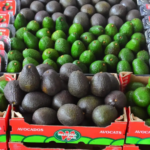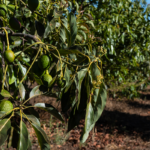Brazilian avocado producers undergo audit to export to Japan

In September 2024, the Land of the Rising Sun authorized the shipment of Hass avocados from Brazil. The announcement was welcomed by the Brazilian Association of Fruit Producers and Exporters (Abrafrutas), which highlighted Japan as a promising opportunity for Brazilian avocados.
“We have a great opportunity to win over the Japanese palate with our avocado, which is known for its unique quality and flavor. It is now up to us to continue meeting Japan’s strict phytosanitary standards and keep that door open,” said Abrafrutas president, Guilherme Coelho, after hearing the news.
Japan has established a series of requirements that Brazilian exporters must meet, including an annual visit from a Japanese inspector to certify and assess the fruit processing and packaging sites intended for export.
Inspection of Brazilian Avocados
At the end of April, Japanese industry leaders led a technical mission to Brazil to audit the procedures and operations implemented by Brazilian Hass avocado producers.
Abrafrutas reported that the delegation visited production fields in the state of São Paulo, Brazil’s main avocado-producing region.
The visit reviewed aspects such as employee training records, harvest control, fruit traceability, and storage and transport conditions.
The audit revealed no issues, which “demonstrates the capability of our producers to meet the demands of high-standard markets like Japan. The Japanese inspector highlighted the professionalism of Brazil’s production chain and the seriousness with which protocols are followed,” Abrafrutas stated.
Avocado Production and Markets
Brazil is one of the largest avocado producers in the world, with production exceeding 338,000 tons in 2022. The fruit is mainly grown in the states of São Paulo, Minas Gerais, Paraná, Espírito Santo, and Ceará—regions with climates and soils well-suited for the development of varieties such as Hass and Breda, which are highly valued in international markets.
Brazil’s Hass avocado exports have grown significantly in recent years, reaching 23,000 tons in 2023, a 9.72% increase compared to the previous year.
The main export destinations are Europe (mainly Spain, the Netherlands, and the United Kingdom), as well as Argentina, Bolivia, France, and Uruguay.












































